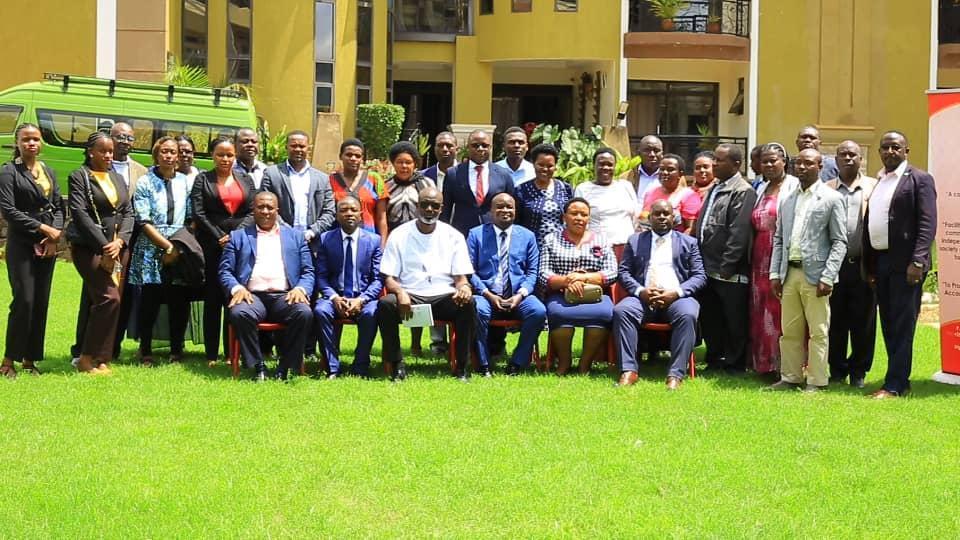Africa-Press – Uganda. Non-governmental organisations operating in Kigezi sub-region are facing operational hurdles due to persistent refusal by district local governments to sign Memoranda of Understanding (MOUs) with them, a situation they say is threatening their ability to deliver services and attract donor support.
The concern came to the fore during a two-day regional reflection engagement currently underway in Kabale Municipality.
The meeting has brought together NGO representatives, district NGO monitoring committees, and officials from the NGO Bureau under the Ministry of Internal Affairs, with a focus on Uganda’s legal framework for civil society work.
The event is organised by the Ministry of Internal Affairs in partnership with Kick Corruption out of Uganda and Human Rights Centre Uganda.
Florence Tumuheirwe, one of the civil society representatives at the meeting, said that being denied MOUs by district authorities is a major barrier to their work, particularly when it comes to securing donor funding.
“Most donors demand to see a valid MOU with the district before committing funds. Without that, we are stuck,” Tumuheirwe said.
“I would request the NGO Bureau and our districts to support us and ensure these MOUs are signed so that we can serve our communities effectively.”
Tumuheirwe also highlighted that many NGOs lack the resources to facilitate district-level committees responsible for signing off on these agreements, suggesting that this too could be fuelling delays or refusals.
Kabale District Chairperson Nelson Nshangabasheija voiced frustration at what he termed a lack of appreciation for the role NGOs play in service delivery.
He said some local governments fail to recognise the value NGOs bring not only to communities but also to local politicians who benefit from improved service access.
“NGOs are here to support government efforts, not to compete with them,” Nshangabasheija said.
“They build schools, run health programmes, and extend services to our people where government falls short. Blocking them does not help anyone.”
Dr. Stephen Okello, Secretary of the NGO Bureau, acknowledged the issue and described some of the demands imposed by districts as irregular and counterproductive.
“When districts deny NGOs MOUs or attach illegal conditions, they deny beneficiaries essential services,” Okello said.
“This is a key takeaway for us from the Kigezi engagement. We are going to take it up with the Ministry of Local Government so that district leaders are guided appropriately.”
Okello reiterated the Bureau’s commitment to protecting the operational space for NGOs while urging both parties to respect the law and act in the public interest.
The situation in Kigezi reflects wider national concerns about the enabling environment for NGOs, especially at the district level, where bureaucratic bottlenecks and unclear procedures often disrupt programme delivery.
The engagement is expected to close with a set of resolutions aimed at harmonising relations between NGOs and local governments, and ensuring that legitimate organisations are not unduly blocked from implementing development programmes in communities that need them most.
For More News And Analysis About Uganda Follow Africa-Press






